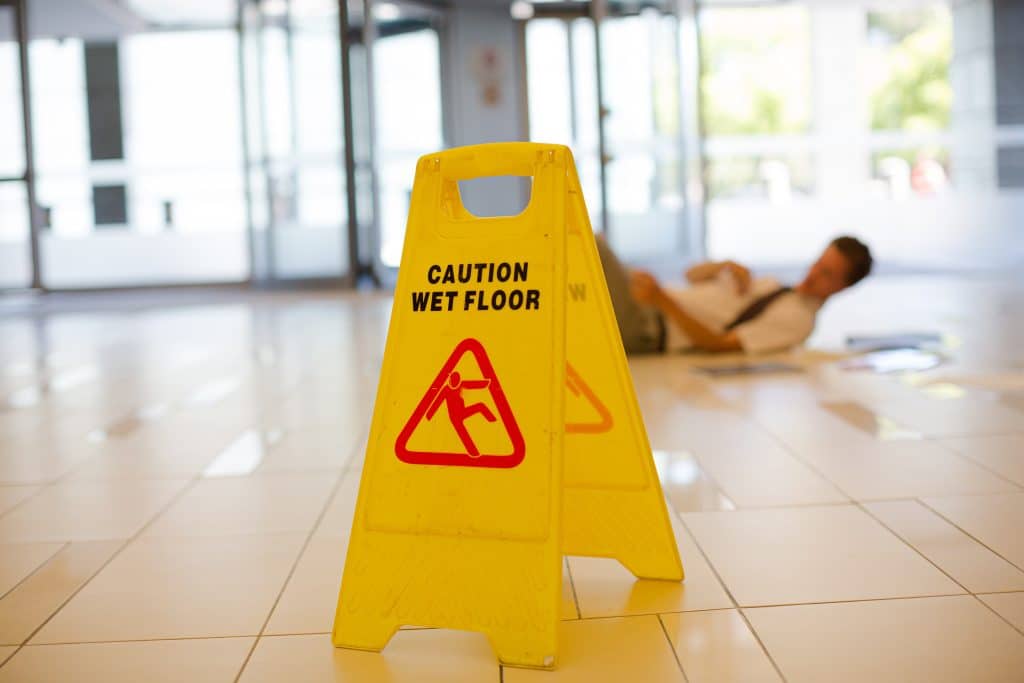A slip and fall can happen in seconds but cause lasting injuries. Whether it’s a wet grocery store floor or a broken step at a friend’s house, these accidents often raise serious legal questions. Understanding your rights can help you protect your health and your future after a fall.
Common Places and Causes of Slip and Falls
Slip and fall accidents occur in a wide range of settings, including:
- Grocery stores or shopping centers
- Restaurants or bars
- Sidewalks and parking lots
- Office buildings
- Private homes
These incidents are often caused by wet floors, uneven surfaces, poor lighting, or missing warning signs. Property owners have a legal responsibility to maintain safe conditions. When they fail, they may be liable for your injuries.
Types of Injuries from Slips and Falls
Falls can lead to injuries that affect your ability to work and perform everyday tasks. Common injuries include:
- Broken bones – especially wrists, arms, hips, and ankles
- Head trauma – including concussions or more severe brain injuries
- Spinal injuries – like sprains, strains, or more severe injuries to the neck and back.
Even if you feel okay at first, some injuries take time to show symptoms. Always seek medical care right away.
Who Is Liable?
In Louisiana, property owners must take reasonable steps to keep their premises safe. This duty of care extends to customers, guests, and in some cases, even trespassers.
To prove liability, you must show:
- The property owner knew or should have known about the hazard
- They failed to fix it or warn others
- That failure directly caused your injury
This is known legally as negligence, and it’s the foundation of most slip and fall claims.
Gathering Evidence
Strong evidence can make or break your case. Right after a fall, try to:
- Take photos or videos of the area and hazard
- Collect witness names and contact info
- Report the incident to the property manager and get a written statement
- Keep medical records and receipts for treatment
If possible, avoid making statements that could downplay your injury.
Filing a Claim
Louisiana law gives you only two years for accidents that occurred after 7/1/24 to file a personal injury lawsuit (La. Civ. Code art. 3492). That’s why it’s important to act quickly.
You may need to file a claim with the property owner’s insurance before heading to court. An experienced attorney can guide you through this process and help avoid costly mistakes.
How an Attorney Can Maximize Your Case
At Hunter & Beck, we know how insurance companies operate. Our legal team can:
- Investigate the scene and gather key evidence
- Handle all communication with insurers
- Negotiate a fair settlement or take your case to trial if needed
We’ve helped many clients in Central Louisiana recover compensation for medical bills, lost wages, and pain and suffering after a fall. Every case is different, but experience matters.
Frequently Asked Questions (FAQs)
- What qualifies as a slip and fall accident?
Any injury that occurs because you slipped, tripped, or fell due to a dangerous condition on someone else’s property. - Can I sue a business if I fall on their property?
Yes, if the business failed to fix or warn you about a known hazard. - What if I was wearing slippery shoes?
That may be considered, but it doesn’t automatically make you at fault. - How do I prove the property owner was negligent?
You must show they knew or should have known about the hazard and didn’t take action. - Should I take photos at the scene?
Absolutely. Visual evidence can be powerful in proving your claim. - How long do I have to file a claim?
Typically, 2 years for all falls after 7/1/24. - What if the fall happened at a friend’s house?
You can still file a claim, usually through their homeowner’s insurance. - Will security camera footage help my case?
Yes, if it’s available. Your attorney can request this footage before it’s deleted. - What compensation can I receive?
Medical expenses, lost wages, pain and suffering, and sometimes future medical costs. - Do I need a lawyer for a minor injury?
Even minor injuries can worsen. A lawyer helps ensure your rights and recovery are protected.

